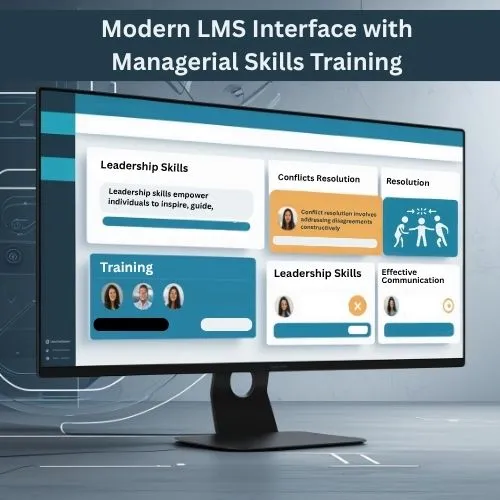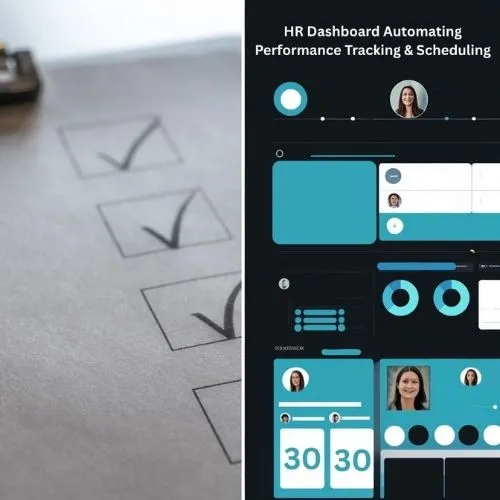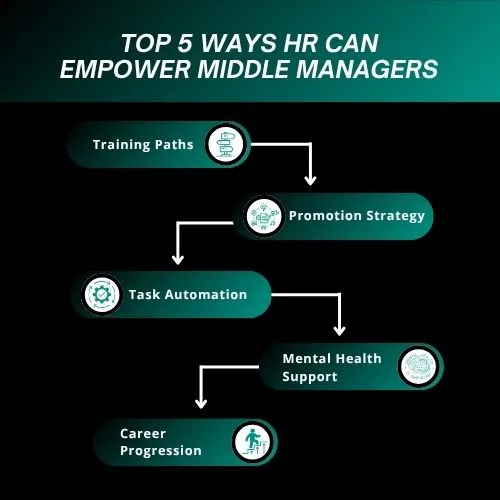Middle managers are often the unsung heroes of an organisation. Acting as the critical link between senior leadership and frontline employees, they are tasked with translating strategy into action while simultaneously managing teams and hitting performance targets. Despite their vital role, middle managers often feel overlooked, overwhelmed, and unsupported.
In this blog, we’ll explore how HR can empower these managers—especially those at risk of burnout—with targeted training, smarter promotion strategies, and automation tools that ease pressure and foster growth.
1. Provide Targeted Training—Both Formal and Informal
Many middle managers lack adequate training, especially in smaller businesses or remote settings. Promotions are often based on past performance, leaving little room or time to upskill for new responsibilities.
HR should establish structured training programmes focused on critical skills like conflict resolution, project management, and leadership. Formal courses can be delivered via LMS platforms or customised workshops. Informal mentorship schemes—such as pairing middle managers with seasoned leaders—can close skill gaps and offer real-time support.

2. Promote Based on Potential—Not Just Performance
Promotion decisions often favour top performers, but high individual contributors don’t always make effective managers. Leadership requires emotional intelligence, team coordination, and strategic thinking—qualities not necessarily tied to past job performance.
HR should shift the focus to potential-based promotion. Use tools like succession planning software to track competencies and assign rotational leadership tasks to evaluate performance in different scenarios. Introduce parallel career paths so top performers can grow without necessarily stepping into management roles, avoiding mismatched promotions.
3. Use Automation to Lighten the Load
Middle managers are juggling countless tasks—from delegating work to tracking team progress. This workload often leads to inefficiency and stress. Automating routine processes helps free up their time for people-focused leadership.

HR can deploy business intelligence (BI) tools and AI-powered platforms for task assignment, performance tracking, scheduling, and feedback collection. These tools not only enhance accountability but also provide real-time insights for strategic decisions.

Conclusion: Prioritise Your People
Middle managers are the operational backbone of any organisation. Yet too often, they’re left without the support they need to thrive. HR teams must prioritise their development and wellbeing—through training, promotion transparency, and automation.
By investing in middle managers today, businesses lay the foundation for stronger leadership, higher employee retention, and long-term growth.
💡 Looking to support your middle managers? Explore our HR software solutions or contact us for a consultation.





